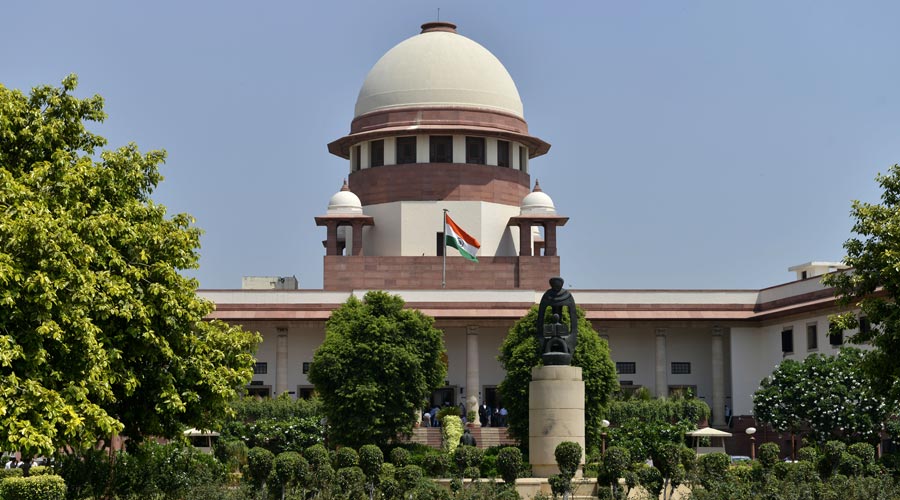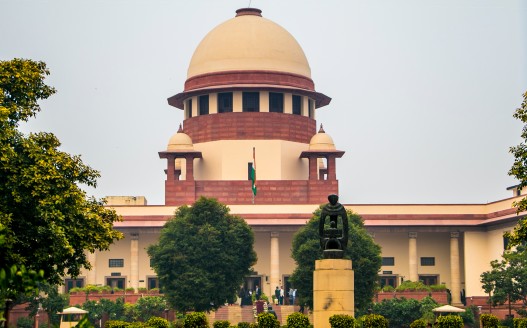Reservation should not continue for an indefinite period so as to become a "vested interest" and the vision of the framers of the Constitution that there should be a "time span" for such quotas has not been achieved, the Supreme Court said on Monday in its majority judgment while upholding the EWS quota.
In a 3:2 majority decision, the top court upheld the 10 per cent reservation for the economically weaker sections (EWS) in education and government jobs that excluded the poor among the SC, ST and OBC categories.
Justices Bela M Trivedi and J B Pardiwala, who wrote two separate and concurring views with Justice J K Maheswari in upholding the EWS quota, referred to the time span envisaged by the framers of the Constitution for having reservation in the country.
Quoting B R Ambedkar, Justice Pardiwala said the idea of "Baba Saheb Ambedkar was to bring social harmony by introducing reservation for only 10 years. However, it has continued for the past seven decades. Reservation should not continue for an indefinite period of time so as to become a vested interest."
Justice Trivedi, in her 24-page judgment, asked whether the country cannot move towards the ideal envisaged by the framers of the Constitution to have "an egalitarian, casteless and classless society", and stressed that there is a need to revisit the system of reservation in the larger interest of the society as a whole, as a step forward towards transformative constitutionalism.
Though difficult, it is an achievable ideal, she said, adding, "Our Constitution, which is a living and organic document, continuously shapes the lives of citizens in particular and societies in general."
"What was envisioned by the framers of the Constitution, what was proposed by the Constitution bench in 1985 and what was sought to be achieved on the completion of 50 years of the advent of the Constitution, that is, the policy of reservation must have a time span has still not been achieved even till this day, that is, till the completion of 75 years of our independence," she said.
Justice Pardiwala, in his 117-page verdict, said reservation is not an end but a means - "a means to secure social and economic justice".
"Reservation should not be allowed to become a vested interest. Real solution, however, lies in eliminating the causes that have led to the social, educational and economic backwardness of the weaker sections of the community," he said.
The exercise to eliminate the causes started immediately after the country achieved independence and it still continues, Justice Pardiwala added.
"The longstanding development and the spread of education have resulted in tapering the gap between the classes to a considerable extent. As larger percentages of backward class members attain acceptable standards of education and employment, they should be removed from the backward categories so that attention can be paid toward those classes which genuinely need help," he said.
In such circumstances, it is very much necessary to review the method of identification and the ways of determining backward classes, and also, to ascertain whether the criteria adopted or applied for the classification of backward classes is relevant in today's conditions, Justice Pardiwala said.
Justice Trivedi said it cannot be gainsaid that the age-old caste system in India was responsible for the origination of the reservation system in the country.
The reservation system was introduced to correct the historical injustice faced by those belonging to the Scheduled Castes, Scheduled Tribes and Other Backward Classes, and to provide them a level playing field to compete with those belonging to the forward classes, she said.
"However, at the end of 75 years of our independence, we need to revisit the system of reservation in the larger interest of the society as a whole, as a step forward towards transformative constitutionalism," Justice Trivedi said.












